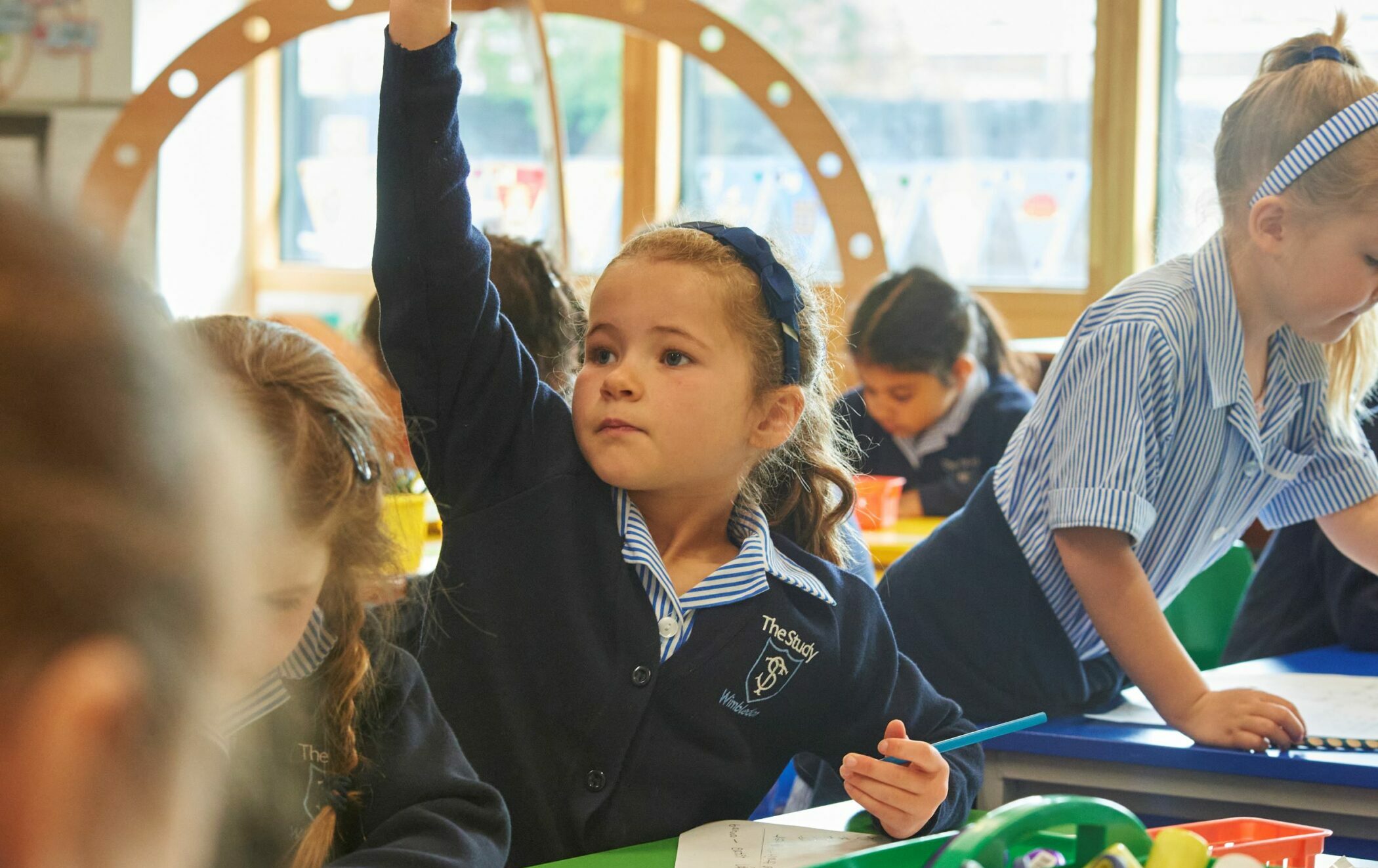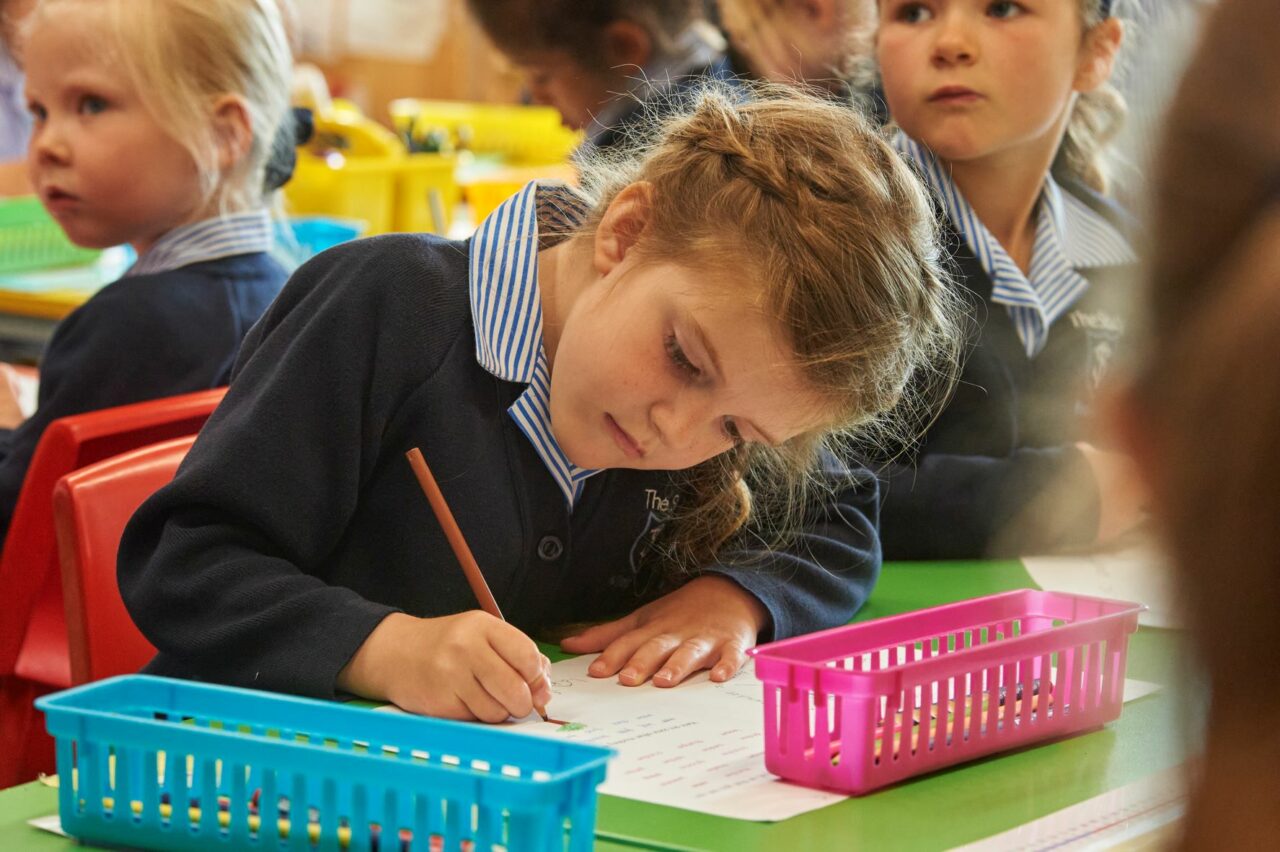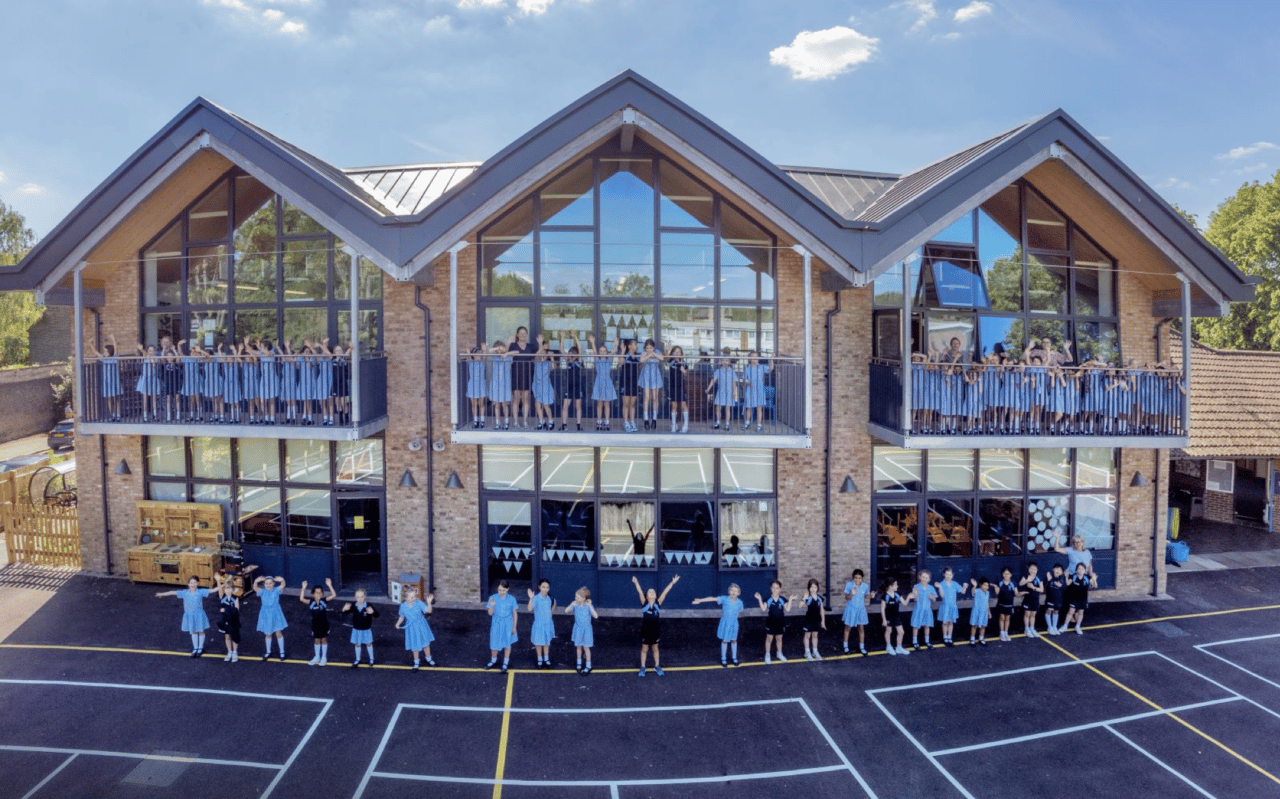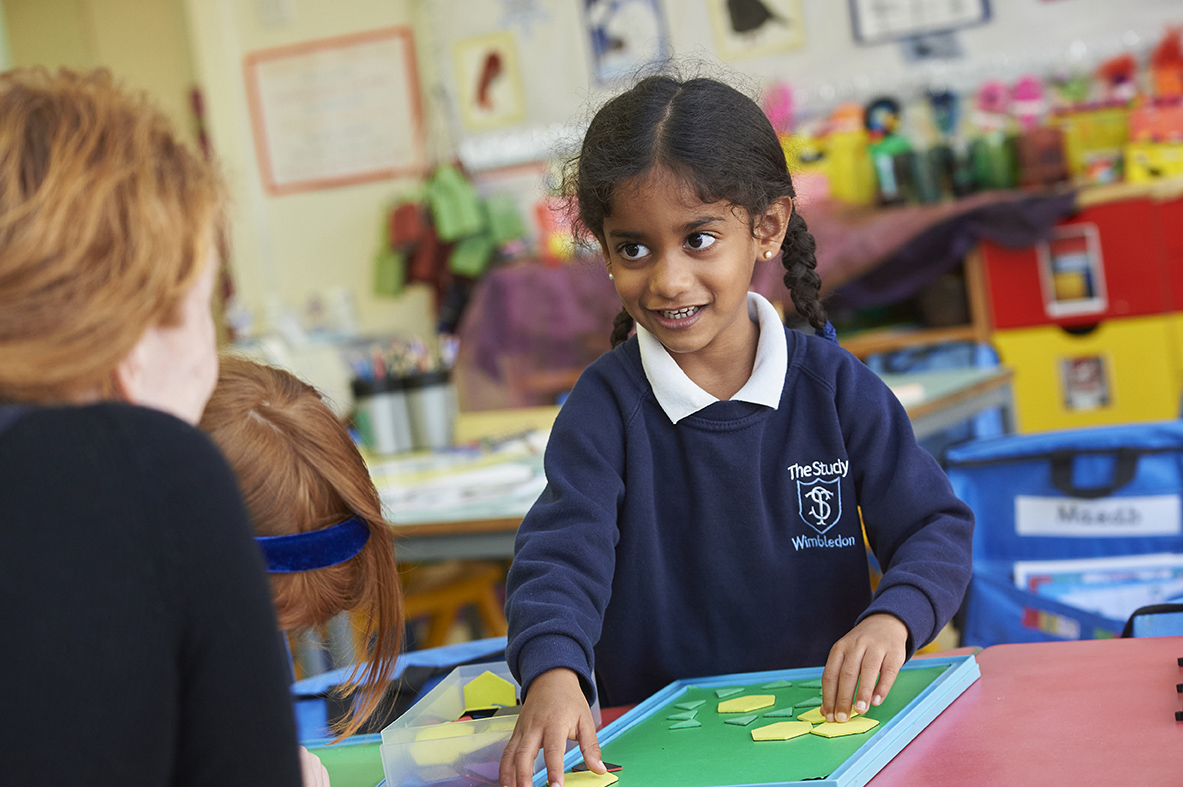How do you measure pupil achievement and progress?
Monitoring children’s progress is carefully incorporated into lesson planning and takes place continually, both in individual lessons and across set periods of time.
Age appropriate assessments are carried out termly to help your daughters’ teachers build up a clear picture of her understanding. Data from these assessments is used to ensure individual pupil’s achievements and progress are where they should be.
The teaching team holds pupil progress meetings to discuss each child and ensure any interventions are put in place to support or challenge where necessary.
Formal feedback on progress is provided at Parents’ Evening and via your daughter’s school reports. Parents are also periodically invited into school to see their daughter’s work.
We have an open door policy and staff are happy to discuss any concerns on the gate at drop off and pick up or via email.
How do you get such good 11+ results if you take mixed ability children?
We are proudly non-selective at Reception. Few girls fall neatly into categories of ability; all will have their own areas of strength. Targeted teaching takes place in every classroom to ensure all Study girls are appropriately challenged and supported.
The high teacher to pupil ratio in our younger years, as well as the use of support and challenge groups, fosters a strong start to school life. Further up the school, our girls are grouped to enable the best possible outcomes depending on the cohort of pupils.
What curriculum do you follow?
Our curriculum is carefully planned and delivered in line with the National Curriculum, with many opportunities that go above and beyond this.
There are aspects of the Early Years Foundation Stage (EYFS) framework and Relationships and Sex Education (RSE) which are mandatory for all schools.
As an independent school we are able to devise our own syllabus for Study girls, which is both stimulating and age appropriate.
How do you integrate technology?
Technology is a vital part of children’s lives. We integrate technology and digital learning in numerous ways, to allow all pupils to develop digital skills and understand how to use technology safely.
IPads are used across the school to ensure children develop digital skills and experience learning through devices they’re likely to encounter at senior school and beyond.
From Reception through to Year 2 class sets of iPads are a shared resource. From Year 3 onwards, girls have access to individual iPads. As the girls become more skilled with using technology, the iPads become a ‘digital pencil case’ that they take with them from lesson to lesson, making use of digital resources and educational apps to enhance their learning.
We have a cross curricular approach to teaching computing. All children enjoy a weekly lesson with a specialist computing teacher, and we also run a range of extra-curricular clubs, such as STEAM (Science, Technology, Engineering, Art and Mathematics) Club, which allow our pupils to experiment with new technologies.
Technology keeps evolving and we always try to adapt to these changes in school so our girls stay ahead of the game.
What homework do you set?
Age appropriate homework is set for all the girls to reinforce the learning that takes place in school. In Reception, this will largely consist of letter sounds and reading. At Wilberforce House, this builds year on year at manageable levels to the end of Year 3.
There will be a mixture of written and online homework tasks. Each week there will be spellings to practise. There will also be a Maths task and an English or Creative Curriculum activity to complete at home.
We encourage all Study girls to foster a love of reading and encourage you as parents to read to and with your child every day. From Reception onwards, girls will bring home books each week to read. By the time girls get to Spencer House reading becomes more independent. All pupils have access to our eBook Library – your daughter can search for age appropriate books and there are also audiobooks to listen to.
Spencer House girls can expect to receive regular Maths and English homework alongside weekly spellings and reading. In Years 5 and 6, online homework often takes place through platforms such as Atom Learning, which is used to support 11+ preparation.
Homework encourages good learning habits for the older girls to take forward to senior school; however, we believe play, rest and family time are equally important.
I do not know much about future schools – where do I start?
Preparing to make decisions about senior school can feel like a daunting process, but we’re here to support you and your daughter every step of the way.
We believe there is no ‘best’ senior school, but that there will be a right senior school for every Study girl. Our team excels in working collaboratively with each pupil and her family to find the right school for her onward educational journey.
You can find out more about the support we offer in preparing for senior school and the schools our girls move onto on the dedicated pages on this website
How big are classes?
We have two classes in every year group at The Study.
From Reception through to Year 3 there is a maximum of 24 girls in each class. In Years 4 to 6, class sizes are typically smaller, averaging about 22 girls in each class.
What is the ratio of teachers to pupils?
At Wilberforce House, a full time Teaching Assistant supports each class teacher, ensuring pupils get the attention they need.
At Spencer House, each year group is supported by at least one individual Teaching Assistant.
What does the timetable look like?
Our busy and enriched timetables vary depending upon how old your daughter is.
All children enjoy the core curriculum academic subjects of English and Maths, as well as Science each week. In addition, pupils are taught the following non-core curriculum subjects weekly:
- Reasoning (in Years 4, 5 and 6)
- Languages (French and Spanish, depending upon the child’s year group)
- Humanities
- Religious Education
- Personal, Social and Health Education (PSHE) and Relationship and Sex Education (RSE)
- Creative writing
- Drama
- Music
- Ballet (Reception through to Year 2)
- Art
- Design and technology
- Computing
- Library time
- Games
What time does school start and finish?
| Gates open | Classrooms open | Registers | Finish | |
|---|---|---|---|---|
| Wilberforce House | ||||
| Reception | 08:10 | 08:20 | 08:30 | 15:15 |
| Year 1 | 08:10 | 08:20 | 08:30 | 15:15 |
| Year 2 | 08:10 | 08:20 | 08:30 | 15:30 |
| Year 3 | 08:10 | 08:20 | 08:30 | 15:30 |
| Spencer House | ||||
| Year 4 | 08:00 | 08:20 | 08:30 | 15:30 |
| Year 5 | 08:00 | 08:20 | 08:30 | 15:30 |
| Year 6 | 08:00 | 08:20 | 08:30 | 15:30 |
All pupils are supervised in the playground until classrooms open.
Breakfast club is available daily at Wilberforce House from 07:30 (including a light breakfast) and after-school care is available Monday to Thursday, until 17:00 or 18:00 (including a light tea).
What is your learning support and additional needs provision?
Every Study girl is different and one child’s strength might be another’s weakness. We understand that some children may be challenged in certain areas and all of our teachers take responsibility for pupils with special educational needs or disabilities (SEND). Our aim is to ensure every girl in our school is given the tools she needs to flourish.
Learning Support
At The Study, we aim to know and understand each girl as a unique individual to ensure she feels happy and secure, and is able to make the progress she’s truly capable of.
Teaching children with varying abilities and needs is a whole-school responsibility, requiring a whole-school response. Central to our work in every class is a continuous cycle of planning, teaching, assessment and evaluation that takes account of the range of abilities, aptitudes, gifts, talents and interests of all pupils.
From this viewpoint, our provision for SEN (Special Educational Needs) begins with building a clear picture of the girls’ strengths and areas of difficulty. We run a dyslexia screening test in Years 3 and 5, and will undertake further testing as required. We begin with inclusive in-class support and increase this through carefully planned and evaluated intervention groups outside the classroom.
Each pupil has a profile of her particular needs documented in an individual SEND programme, which specifies short-term targets, the teaching strategies to be used and the provision to be made. These are shared and reviewed with both the pupil and their parents.
Out of class support
There are of course some pupils who need us to provide interventions that are additional to, or different from, those provided as part of the school’s usual differentiated curriculum. Our graduated response to a child’s additional needs may result in bespoke one-to-one tuition, or support from other outside professionals.
We welcome visiting Occupational and Speech and Language therapists as well as specialist teachers to increase pupils’ progress. All out-of-class interventions are scheduled to take place with minimal disruption to classroom learning wherever possible, avoiding the core subjects of English, Maths and Science.
Specialist learning support
If required, we may recommend additional support from our visiting specialist teachers. The cost of this specialist one-to-one tuition within school is agreed and paid for by the pupil’s parents.
Through a process of both formal and informal assessment, they look to identify and address any gaps in learning using multi-sensory teaching strategies and align individual learning targets to the demands of the classroom. They also meet with class teachers twice in an academic year to monitor and review progress.
Do children learn another language?
All of our children from Reception upwards enjoy weekly French classes. In Year 6, girls also get the opportunity to learn Spanish.
Our languages are taught by two specialist teachers who are fluent in the languages they teach.
How do you support pupils when English is their second language?
We recognise the enormous benefits for children growing up in a bilingual or multilingual environment. Evidence shows being exposed to different languages at home can bring a number of advantages to learning and we celebrate diversity of language in school.
On average, around 10% of our pupils come from multilingual backgrounds.
Following an informal assessment, our specialist English as an Additional Language Teacher will work with individual pupils or small groups to give the additional support needed. Our aim is to ensure your daughter’s language skills are secure enough to cope in a classroom environment so she can access the learning and thrive.



